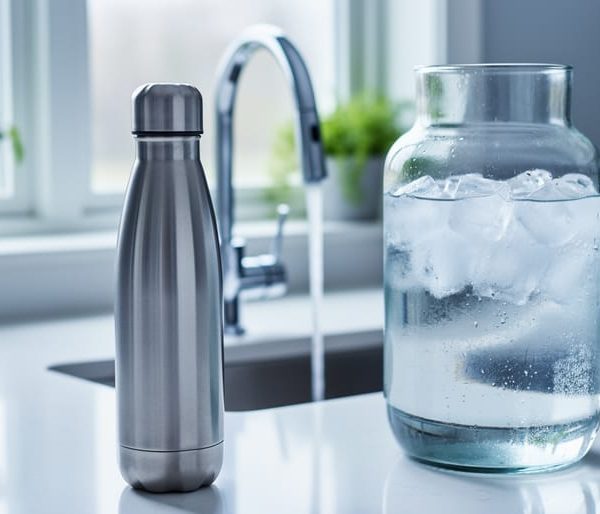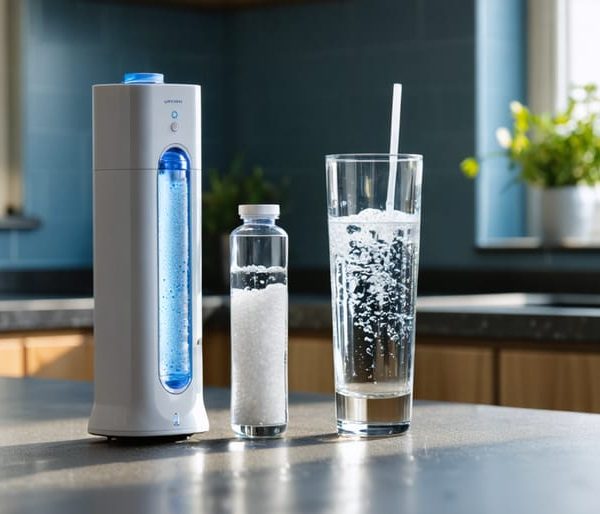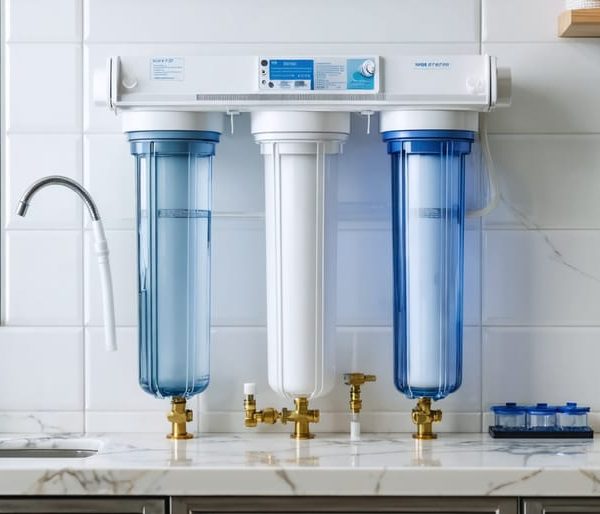The feeling of throwing up shortly after drinking water is indeed an unpleasant feeling, especially when water is an essential human need for survival.
Experiencing nausea after drinking water can lessen your desire for regular water intake because your brain will connect a sick feeling with a glass of water.
There are multiple reasons for nausea, including an empty stomach, pregnancy, and even dehydration.
What Is Nausea?
Nausea is simply a feeling of discomfort in your stomach that makes you lose appetite for food and gives you an urge to throw up. It can be caused by several things, such as motion sickness or acid reflux. Nausea can also be linked to anxiety.
You can also feel sick or nauseous after an intense workout routine or when the weather is very warm. Funny enough, you can also feel nauseous for no reason at all. Conclusively, all it takes to awaken the feeling of nausea is a short-term imbalance in your body.
Then there can be more serious reasons you are feeling sick. For instance, bacterial infections such as gastritis or viral infections can trigger nausea.
In the case of infections, you will lose your appetite and may vomit as well. Nausea can also be a symptom of more serious medical conditions such as appendicitis or digestive disorders such as gastroesophageal reflux disease.
In summary, nausea can be attributed to many reasons or no reason at all. This is why it’s not easy to determine the exact cause of a sick feeling in your stomach. However, when it comes to post-drinking nausea, it may be easier to figure out some of the possible causes.
Nausea After Drinking Water Is Not Always a Symptom of Serious Health Issues (But It May)
Feeling nauseous after drinking water doesn’t always indicate that you are seriously sick.
However, it is advisable to be concerned if a nauseous feeling after water consumption is not normal for you. Therefore, it is best to consult your doctor for professional advice on the issue.
You should take this step, especially if you also feel nausea after meals, experience nausea for up to a week, or feel other symptoms aside from nausea.
Your doctor can conduct diagnostics to determine the problem, but if they don’t think it’s serious, they can reassure you that your health is alright and provide solutions.
Reasons You Feel Nauseous After You Drink Water
1. Full Stomach
When you fill your stomach with food and immediately drink water, this can stretch your stomach further and trigger nausea.
If this is why you feel nauseous, it is best to take small sips of water after a heavy meal or wait for 30 minutes before you drink water.
Being familiar with your body is very important. For example, people who have slow body metabolism might be better off eating their meals in smaller portions or drinking smaller sips of water all through the day.
This is much better than consuming a lot of food at once or gulping too much water on the spot.
2. Dehydration
Dehydration occurs when you don’t consume enough water or when your water consumption is below the daily minimum intake.
You may wonder how you can tell that it’s dehydration and not something else for the nausea you’re feeling. There will be other indications as well.
Aside from nausea, you’ll also experience fatigue, dizziness, headache, light-headedness, dry mouth, and dry lips.
Another way to be sure that you’re dehydrated is the color and odor of your urine. If the color of your urine is amber or dark yellow and the odor is strong, then that’s a strong indication that you’re not drinking enough water.
3. Empty Stomach
If an empty stomach is why you’re feeling nauseous, it simply means you’re hungry. Water sustains us, but it doesn’t provide enough energy for the body.
4. Pregnancy
Pregnancy is another reason you may feel nauseous after drinking water. Some pregnant women may feel experience morning sickness, especially in the first trimester.
However, the term “morning sickness” is a misnomer because you can feel ill at any time, even all through the night. In addition, there are other surefire signs that you’re pregnant.
Signs such as urinating frequently, stomach pain, abnormally low blood pressure, fatigue, and spots can indicate that you’re pregnant. If you notice all these signs, it’s best to go for a pregnancy test.
5. Water Contaminants
Unlike the previous reasons, which were based on your body system, this one is based on the water you drink. If your drinking water is contaminated, it may trigger nausea when you consume it.
Municipal water systems treat water before supplying it to the various homes, but they still contain trace contaminants. Well water is even more prone to contamination.
Some of the popular water contaminants in your drinking water include:
Heavy Metals
Heavy metals are commonly found in groundwater. Some of these heavy metals, such as manganese and copper, are beneficial to our bodies. But, on the other hand, other heavy metals can be harmful to our bodies.
A notable example of a toxic heavy metal is lead. It can be dangerous in your drinking water and should be neutralized and filtered out before you consume your water.
However, this doesn’t mean trace quantities of lead or other toxic byproducts will make you experience nausea. That only happens when they are heavily present in your drinking water.
When this occurs, you may experience nausea and abdominal pains, headaches, the urge to vomit, shortness of breath, fatigue, and diarrhea.
Drinking Bacteria-Contaminated Water
Bacteria is a very common water contaminant in well water. Bacterial contamination (precisely fecal coliform) in your water usually comes from sewage treatment plants.
If your water tests positive for this bacterium, the best course of action is to start drinking bottled water till the contamination issue is resolved.
Blue-Green Algae
This contaminant is a living organism that’s commonly found in city water and well water. This toxic algae blooms in hot weather conditions.
There are no EPA drinking water limits for this particular contaminant, which means that water treatment plants are not obligated to eliminate it. That’s why algae are the most dangerous contaminant in your drinking water.
Aside from nausea, this contaminant may trigger respiratory complications, stomach and liver complications, and eye and skin irritation.
Pesticides

These contaminants can be found in well water and surface water. The volume of pesticides in your drinking water depends on the quantity of agricultural runoff and water source in your area.
They are under EPA regulation, but they can still be found in small amounts in your water after treatment. Aside from nausea, they can make you experience diarrhea, rashes, blisters, dizziness, and even death.
6. Health Issues
Ailments or medical conditions, gastroesophageal reflux disease can trigger vomiting and nausea after you drink water.
This doesn’t often occur, but water can also cause acid reflux and heartburn. On the other hand, water should be able to push your stomach acid back down your esophagus.
7. Electrolyte Imbalance
Electrolytes are essential minerals that our bodies require to survive. Electrolyte imbalance can occur when you’ve lost body fluids through sweating due to intense physical activities.
Other causes include using medications such as antibiotics and diuretics, heart failure, kidney disease, and diarrhea.
What You Can Do to Relieve Nausea
If water makes you nauseous, your first reaction may be to stop drinking much water.
However, not drinking enough water will cause two things; thirst and dehydration. So if your stomach reacts to your tap water, there are some effective remedies or solutions that you can pick from:
Buy a Drinking Water Filter
If your water quality is the reason you experience post-drinking nausea, switch to drinking purified or distilled water.
You can also purchase bottled water, but this is not environment-friendly because there will be more plastic waste. A more sustainable solution will be to purchase a distiller or reverse osmosis filter to treat your water supplies.
If your immune or digestive system is sensitive, drinking water that’s free from impurities can help stop that nauseous feeling.
Switch to Drinking Flavored Water
If you think “drinking plain water makes me nauseous”, you can try adding healthy flavors or infusions to your water.
For instance, you can add flavors such as rosemary, orange, ginger root, lemon slices, or even mint to your water in a large Pur or Brita filter pitcher and allow it to mix before drinking.
An alternative remedy is drinking fruit juice when you experience nausea. However, because it is a processed drink and contains a lot of sugar, you should take it in moderation. You can also drink mineral water instead of plain water.
Experiment With Different Water Temperatures
If the temperature of your drinking water makes you feel sick, then experimenting with a different temperature can be the solution.
Drinking cold water isn’t ideal because it causes our blood vessels to constrict and affects our digestion. However, it’s a more appealing option than room-temperature water if the weather is very hot and you’re very thirsty.
So depending on which water temperature triggers nausea in your body, you can make the necessary adjustments.
Eat Before Drinking Water
If you consume water on an empty stomach, this can trick the human body into believing you’re eating. So, if your energy levels are low and your body wants food, this can trigger nausea.
If this is why you feel sick, stop drinking water on an empty stomach. Instead, ensure you drink water only after you’ve eaten something.
Doing this will give your body the energy it requires before you hydrate. Also, be careful not to eat or drink excessively at once.
Drink Carbonated Water
Drinking carbonated water can reduce nausea because it will reduce your stomach acid within a few minutes.
Carbonated or fizzy water is a much better alternative than consuming soda or fizzy drinks, with a high concentration of sweeteners or synthetic sugars.
Consult Your Doctor
If the reasons mentioned above or causes of post-drinking nausea don’t apply to you, you should seek medical advice from a healthcare professional.
Often, the cause of feeling sick after drinking water is vague. It may or may not be water contamination, poisoned drinking water, or other water-related reasons. It could even be food poisoning or the effects of eating a “rich meal.”



